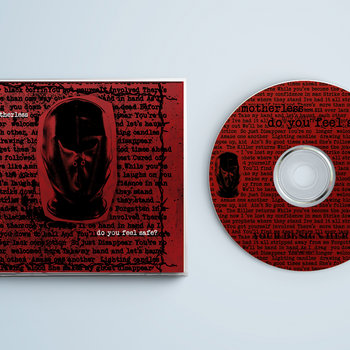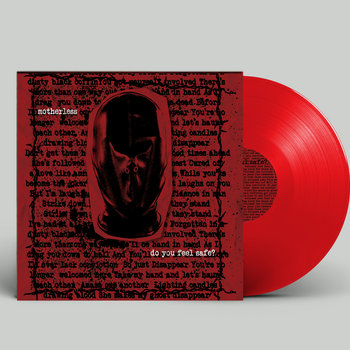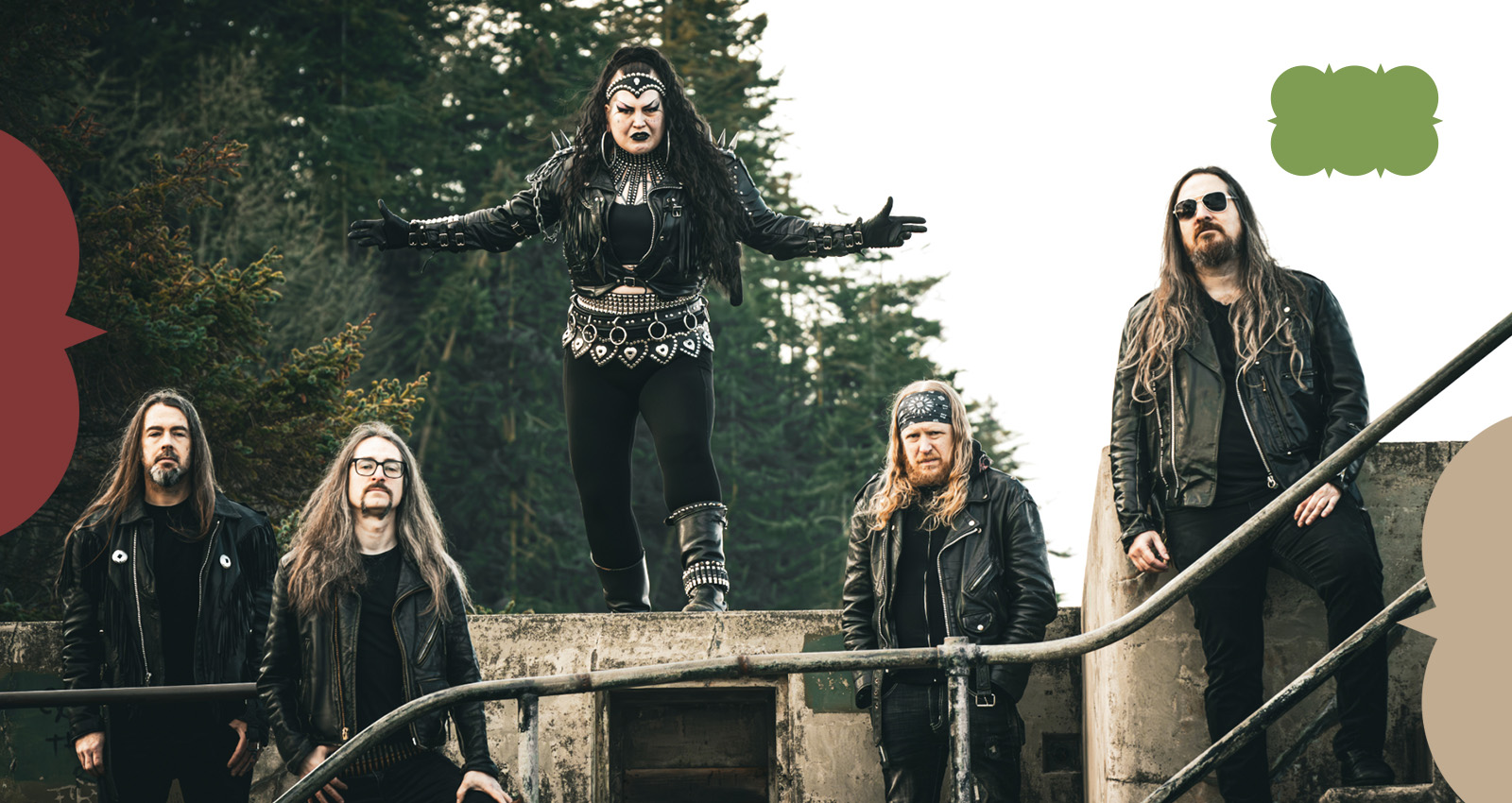BEST METAL The Best Metal on Bandcamp, September 2025 By Brad Sanders · October 09, 2025
The best metal on Bandcamp this month is highlighted by a pair of bonkers avant-garde black metal albums, plus sludge from South Korea, prog from Norway, and much more.
**Esoctrilihum
**Ghostigmatah – Spiritual Rites of the Psychopomp Abxulöm
Italy
Italy
You could be forgiven for wandering in and out of the Esoctrilihum experience over the past eight years. The flagship project from French multi-instrumentalist …
BEST METAL The Best Metal on Bandcamp, September 2025 By Brad Sanders · October 09, 2025
The best metal on Bandcamp this month is highlighted by a pair of bonkers avant-garde black metal albums, plus sludge from South Korea, prog from Norway, and much more.
**Esoctrilihum
**Ghostigmatah – Spiritual Rites of the Psychopomp Abxulöm
Italy
Italy
You could be forgiven for wandering in and out of the Esoctrilihum experience over the past eight years. The flagship project from French multi-instrumentalist Asthâghul is wildly prolific, with 12 albums of challenging, outré black metal out since 2017’sMystic Echo from a Funeral Dimension. (And that’s just counting full-lengths; Esoctrilihum’s standalone singles and EPs function more like side quests.) If you’ve been away, it’s time to come back: *Ghostigmatah – Spiritual Rites of the Psychopomp Abxulöm *finds Asthâghul in peak form. Across 84 minutes of dense, claustrophobic arrangements, *Ghostigmatah *illustrates the bewildering power of Esoctrilihum’s maximalist approach. All but one of the songs lands between 7 and 10 minutes, and each one is an assault on the senses. Enticing melodies, especially the ones Asthâghul plays on hammered dulcimer and nyckelharpa, sometimes float to the top of the mix, but they’re almost always competing with a roiling undercurrent of guitars, drums, and unhinged vocals. Those melodies are life rafts, and Asthâghul knows just when to pull them away to keep you from getting too comfortable. Some of the best moments on *Ghostigmatah *come when Asthâghul introduces a new sonic element to an already overwhelming churn of instrumentation. Early in “Mauled, Swallowed, and Dissolved into Nothingness by the 8-Eyed Psychopomp,” our man is banging out a rhythm on the dulcimer, playing a chugging guitar riff, blasting away on the kit, and chanting indecipherable lyrics in wide-eyed furor. When he adds in the ’50s sci-fi warble of a theremin, it’s almost hilarious. A couple of bars later, it’s clear that it actually works. Those high-wire acts make Esoctrilihum a project unlike any other in black metal today.
**StumpTail
Tennessee
Tennessee
Tennessee-based guitarist Ryan Clackner (Primeval Well, Vile Haint) has carved himself a fruitful niche by applying his roots as an improvisational jazz player to black metal and various strains of American roots music. Of all his mutant creations, the wildest might be StumpTail, a band that began life as the country-metal hybrid Stump Tail Dolly but quickly transformed into something far stranger. Clackner says *Sonder Down Yonder *documents “a simple road trip gone straight to hell…from Nashville to the Florida Gulf Coast.” That road trip manifests as a pair of loopy, sunbaked 15-minute compositions that make up the bulk of the album’s runtime. (I don’t even know what the three-minute coda “Muck Mystication” sounds like—Yngwie Malmsteen and Lynyrd Skynyrd teaming up to cover Mastodon?) Clackner and his bandmates veer between Southern rock groove, black metal blasting, sludgy drone, and ritualistic folk like they’re dots on an unreadable map that’s had one too many illicit tablets chopped up on its surface. The discursive logic of the compositions calls to mind a *Fear and Loathing in Las Vegas-*style odyssey restaged in the Deep South. StumpTail thrives on this disorienting wavelength. Thrillingly, at no point on *Sonder Down Yonder *do they make a predictable choice.
**Gawthrop
**Kuboa
Oakland, California
Oakland, California
Not for lack of trying, I haven’t been able to include much Korean metal on this list over the years. Heavy bands from the land of BTS and Blackpink seem to have a hard time burbling up to the surface. Kuboa, the debut album by Seoul’s Gawthrop, has me wanting to take a deeper dive into the scene. What’s on tap here is crushingly heavy, drone-adjacent, low-end-dominated sludge metal. Think Corrupted, not Crowbar. It’s hard to overstate just how *nasty *of an album *Kuboa *is. Listening to it feels like being slowly dragged through the flooded subterranean apartment in *Parasite *by your hair—the operative word being slowly, as the tempo never gets above a crawl. Cymbals clatter like bones in an exhumed coffin while detuned guitar and bass strain and grind against each other. The songs have titles seemingly selected for their sound rather than their meaning: “Hogweed,” “Granfalloon,” “Nutria,” “Jumbo.” Trapped behind a language barrier, those oddly chosen words only add to Kuboa’s unsettling atmosphere. The album ends with a partial cover of “In Heaven,” the song the Lady in the Radiator sings to Henry in Eraserhead. It’s the first time on the album that bassist/vocalist Sunggun’s words are intelligible, and it ends as quickly as it starts. Gawthrop disappears behind the curtain again, and you’re left in need of a shower.
**Green Carnation
**A Dark Poem Part I: The Shores of Melancholia
Kristiansand, Norway
Kristiansand, Norway
Norwegian prog metallers Green Carnation are best known for their hour-long, single-track album from 2001, Light of Day, Day of Darkness. They haven’t revisited that kind of epic musical storytelling since, but they’re approaching it through a side door with A Dark Poem, their new album trilogy. It’s going to be a couple of years before it’s possible to hear the whole thing in one sitting, but based on Part I: The Shores of Melancholia, it seems poised to deliver some of the subtler pleasures of Green Carnation’s late period on Light of Day’s grander scale. If nothing else, it’s the heaviest the band have sounded in quite some time, especially on the Grutle Kjellson-featuring “The Slave That You Are.” That tune brings Enslaved’s progged-out brand of Viking black metal crashing headfirst into Green Carnation’s more sumptuous sound. Green Carnation was forged in the fires of second-wave black metal; founding guitarist Tchort also played in Emperor. When they bridge the gap between their reckless early days and their more melodically mature era, they sound invincible.
**Die Spitz
Austin, Texas
Austin, Texas
The first time I listened to Die Spitz’s Something to Consume, I was out on a run. I had seen the Austin-based quartet of Ava Schrobilgen, Chloe de St. Aubin, Eleanor Livingston, and Kate Halter live once before, and based on their performance, I hadn’t really pegged them as a metal (or metal-adjacent) band. Imagine my surprise when “Throw Yourself to the Sword,” track three on a near-perfect 11-track debut LP, kicked in. My heart leapt, and my pace doubled. Where the hell did this thrash riff come from, and why did it sound like Megadeth’s “She-Wolf” doused in spilled cheap beer? A few songs later, when “RIDING WITH MY GIRLS” burst out of the gate in Motörheadian splendor, I damn near broke into a dead sprint. Not every song on *Something to Consume *is a metal song, and even its metal songs tend to blend a few different styles together. But Die Spitz are adept at everything they try, whether that’s grunge, thrash, doom, hardcore punk, or the broad interpretation of ’90s alt-rock that serves as the album’s sticky center. The members of Die Spitz are in their early 20s, but their sensibility dates to a bygone age when weird, loud, heavy rock music could conceivably put a young band on an arena stage. I don’t know if those days are over for good. I hope they’re not, because I want to hear “RIDING WITH MY GIRLS” in the largest room possible.
**Motherless
Chicago, Illinois


...
. 00:10 / 00:58
Chicago, Illinois
Chicago’s Motherless have a Google problem. Then again, based on the nasty, mean-spirited sludge punk they play on debut album Do You Feel Safe?, confronting listeners with the seedy reality of the notorious unregulated video site might be the point. Founded by members of theAtlas Moth and Without Waves, but grimier than either one of them, Motherless delivers their riffs raw, ragged, and bathed in noise, balancing hardcore’s directness with extreme metal’s commitment to sonic torment. Drawing on essential crust/sludge acts like Facedowninshit and Dystopia, Motherless provide a less beard-stroking, more gut-punching alternative to the Atlas Moth’s more nuanced take on sludge. Just, uh, don’t look them up without adding “Chicago band” to your search term.
**Hyrde
England, UK
England, UK
Earlier this year, I was blown away by Feohland, the collaborative album by English neofolk/black metal artists Hemlokk and Hyrde. Now, Hyrde is making his full-length debut as a solo artist with Bretwalda. It’s more purely black metal than Feohland, with less of an emphasis on its (still sporadically present) folk instrumentation, but it conjures heathen Albion every bit as effectively. Sung entirely in Old English, *Bretwalda *is rich in atmosphere and verisimilitude, sounding something like Anglo-Saxon battle music, if the Anglo-Saxons had been familiar with Darkthrone. The production is raw, confrontational, yet Hyrde isn’t hiding behind it; hypnotic tremolo riffs swirl and ascend, revealing a melodic ear that’s uncommonly sharp for this corner of the black metal universe. It’s been a hell of a year for Hyrde, and I’m excited to hear what both he and Hemlokk do next.
**Sölicitör
Seattle, Washington
Seattle, Washington
Speed metal is summer music, so I guess it’s a good thing that it’s 85 degrees in late September as I write this. Sölicitör’s music sounds like motorcycles, blacktop, cold beer, leather, whips, and chains; listening to them when it’s cold outside might actually be illegal. *Enemy in Mirrors *is the band’s second album of high-octane speed metal, and it’s a more balanced affair than you might expect from the setup. Sölicitör’s arsenal isn’t just 100 MPH heat, and the off-speed pitches they throw are what keep *Enemy in Mirrors *consistently interesting. If the album hurtled forward at full throttle for its entire 48 minutes, it wouldn’t be as easy to pick up on the threads of dark, eerie melody they’ve woven into the corners of the songs, or to fully appreciate Amy Lee Carlson’s improved vocal performance. The straight rippers, like the excellently titled “Crimson Battle Beast,” are a lot of fun, but it’s odder fare like “Black Magick & The Devil’s Hand” that will keep you crawling back.
